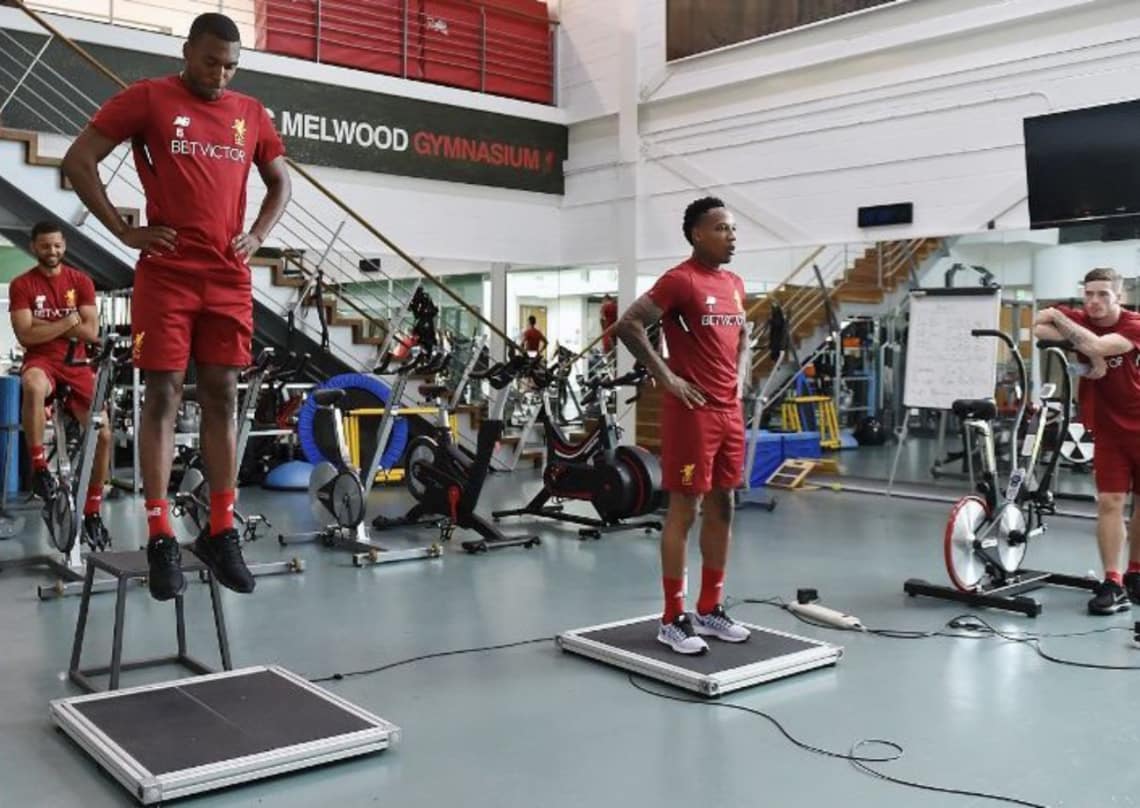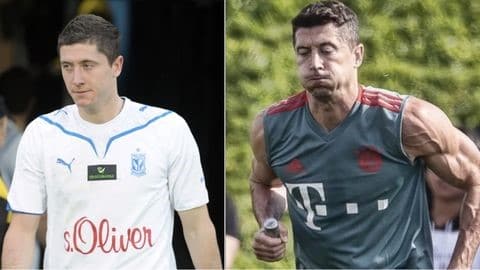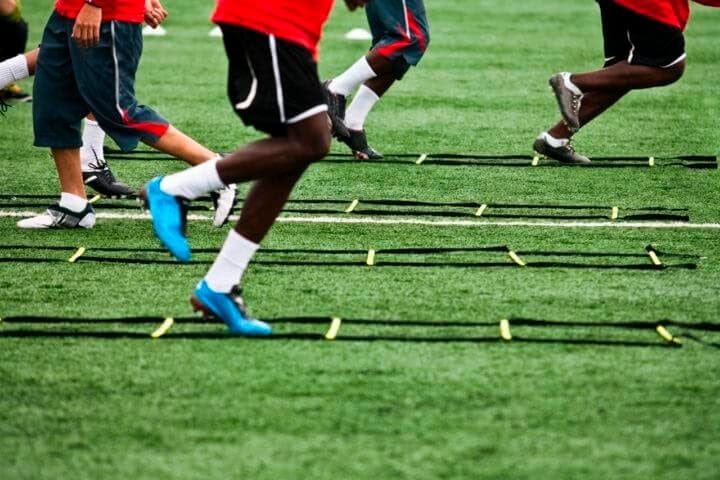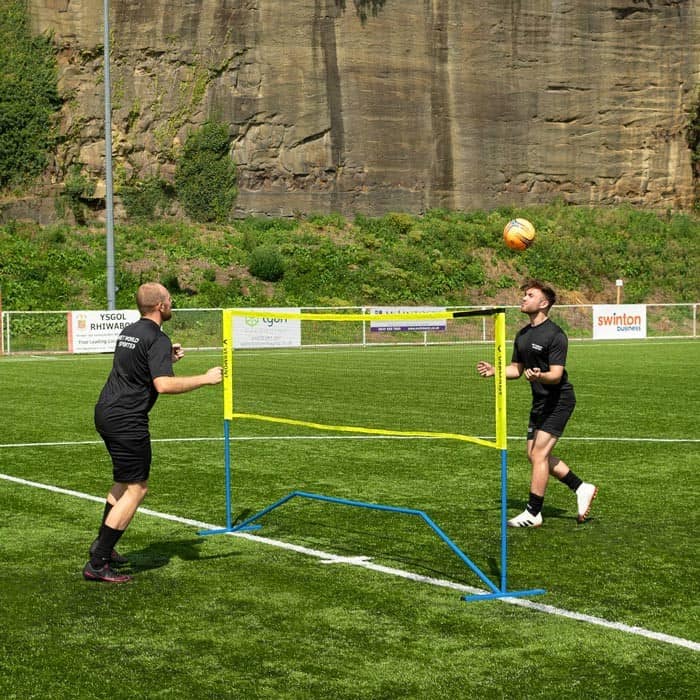7 de March de 2023
Off-Season Training for Football Athletes
Football, today, is one of the most popular sports in the world. Before it, sports such as boxing or gladiatorial wrestling have been sports practices that have reached a very high level of fame. So much so that gladiator wrestling was known as “the opium of the people”. Football is a sport that currently enjoys millions of followers around the world. People enjoy playing and watching soccer because it becomes an exciting and thrilling sport. But for players to perform at their best during the season, off season and off-season preparation must be properly scheduled. In all sports, both team and individual, preparation and training are required to achieve all the goals of the competition. Whatever they say, what matters in top-level competition sports is the victory, the achievement of trophies and the conquest of objectives. In order to face a football, basketball or handball season correctly, it is necessary to make a very exhaustive analysis of the competition itself, but every season begins when the previous one ends. In other words, after the end of a season, football players usually have a few days of “vacation” to return to what is known as “off season”. This time of the year is usually characterized by physical work, high volume and the idea of regaining the sensations of before the end of the season. It is said to be a crucial time to work on physical condition and improve certain technical skills or to improve performance on the field (1). In today’s article we will analyze which are the best strategies to prepare a quality off season and offer some advice on which of them is the most effective for our players. Within the off season we can talk about the planning of the same, the objectives imposed on each player, the individualized training for each position in the field or the tests that allow us to detect whether there has been an improvement or a decline in performance (2)

Off-season or off season training
Before we begin to analyze the best way for a football player to arrive at the competition as prepared as possible, it is important to highlight the differences between off season training and off-season training. Off-season training is a planning that each athlete is free to do or not. However, off season training is mandatory for almost all players. It is true that those athletes who train out of season must have a sufficiently professional planning so as not to generate more fatigue in the athlete and cause their performance to drop when they return to competition. On the other hand, off season training is thoroughly analyzed to achieve the best version of each athlete for when the competition begins.
Off-season training can be a good time to work on the physical condition that each athlete is a little weaker in. For example, if a striker has reduced speed due to injury, off-season training with the goal of improving speed can be a great idea. The same goes for a goalkeeper who has become afraid to do a “little dove”. However, today’s blog article is going to focus on the training that athletes follow during the off season. What are the keys to the best offseason training? What variables should I take into account? Will I ensure that my players are in top form at the start of the competition?
But for this we must first analyze the sport in question. In our case we are going to focus on football, but this should be done with any sport we have in mind. Football is an extremely physical sport and, especially in recent years, has seen an abysmal physical improvement in all players. Today, football requires a combination of technical, tactical and physical skills to achieve success. In order to be the best on the field, football players must work hard during the off season to improve their physical and technical fitness. Below, we will look at a number of strategies to follow to help football players improve their performance in preparation for the start of the season.
Strategies for planning a good off season
To carry out a good off season we can follow these key tips that will make your players start the competition in the best possible way.
Establish clear and achievable goals
The first thing we must do is to make it clear to our athletes how far we want to go. The starting point is important but more important is the point of arrival. Before starting any training program, it is crucial that coaches, physical trainers and the athletes themselves know what their goals are. These goals can be an improvement in speed, agility, strength, endurance or technique. Taking into account that the off season does not usually last long, during the year we could set short- and medium-term goals, but it would not make sense to talk about long term goals.
Prioritize strength work
Strength is a fundamental aspect of football and all sports. As we said at the beginning of this blog post, physical fitness has become indispensable for any football player. A clear example of this is the athlete Lewandowski who, after improving his physical condition, has stood out above other players and has made FC Barcelona take notice of him.

Within the improvement of physical condition, strength training (largely forgotten in team sports) has taken on great relevance. Improving muscular strength is equivalent to improving speed, vertical jump or endurance during the game (3). Because strength training can lead to reduced performance due to fatigue accumulation, working on it especially in the off season can help athletes get off to a better start in competition. Footballers should focus on improving their strength through exercises such as squats, dead weights or lunges, without ever neglecting resistance training. The range of repetitions and number of sets can vary between workouts, but always with the goal of being more efficient on the field. On the other hand, accumulating high volumes of aerobic or endurance training can help players increase their cardiopulmonary capacity and re-acclimate to the pace of training.
Improve speed and agility
Speed and agility are two really relevant aspects when facing an opponent in football (4). Speed is possibly more important than agility, but both are crucial. So much so, that we all know situations in which faster football players manage to overtake their opponents and score a goal. Let’s all remember Gareth Bale’s goal in a Copa del Rey final in Spain in which, thanks to his tremendous speed, he was able to overtake the opponent and score the winning goal. In other words, improving speed during the off season can make the difference between winning or losing a football match. And, on the other hand, agility could be associated with the ability to dribble or dribble, on the contrary. Improving agility can mean having a better overflow or being able to adapt a run to finish a corner kick in the best possible way. These two conditions can be improved in many ways.
If we focus on the athlete’s speed, exercises such as the sprint, weighted pull-up, vertical jump or horizontal jump are key to improving speed. In addition, although it is a secondary work, the improvement of the running technique can make it more efficient and, therefore, the athlete ends up being faster. However, beware of the latter as it could have a counterproductive effect. Currently, one of the fastest players competing in Europe is Kyllian Mbappé. Kyllian has his own running technique, with his arms tilted a lot, with a slight hyperextension of the lumbar spine, but he is one of the fastest players in the French league. In his case, changing that technique could lead to a drop in his performance.

And speaking of agility drills, any exercise that involves combining several tasks at the same time such as moving the feet quickly before the ball, doing multi-jumps to activating a sound signal before the run or simply working on technique with the ball can help improve agility. However, I would not focus on agility work as it is an intrinsic characteristic of football itself.
Performing recreational training and resting
The off season is the best time to include games that, while working on physical condition, make the football player have fun. For example, including a game of “futvolley” is fun for the athletes and works on individual technique. An intra-team competition can be a motivation for training. Or having a small league during the off season between players can help them have fun and motivate them while they are still working.

In addition, a good rest can promote performance improvements. There is a saying that goes “Resting is improving”. The fact is that the body needs rest for supercompensation to occur. If we do not let the body rest at any time, fatigue ends up accumulating and the athlete’s performance is reduced. Players should make sure they get enough rest and quality sleep to allow their bodies to recover from training.
Taking care of your diet
Athletes are subjected to very strict dietary control during the season and it is normal that once the season is over, footballers lose control of their diet. There will be cases where athletes stick to their nutrition programs, but it would not be surprising if they vary their diet. In this sense, if athletes feel that they have been self-conscious during the year, they may put on a lot of weight and seriously neglect their nutrition. However, a good nutritional strategy does not generate this anxiety in the player and he will be able to maintain control once the season is over.
In any case, footballers should maintain a controlled diet during the “vacations”. Otherwise, the off season can be a key moment to return to the nutritional plan established during the season. Eating well and getting enough rest are two key parameters during the performance improvement process (5). The off season is a good time to instill in our athletes the nutritional education required by a high-performance athlete. From here we can emphasize that a correct nutrition introduces foods of all kinds and maintains the levels of anxiety and stress towards food. It is useless to have a nutritional plan with the best distribution of macronutrients if our athlete is anxious about eating. In the same way, a bad nutritional control can lead to a reduction in energy intake and our athlete may feel tired and increase the risk of injury. For this reason, a good off-season training program implies a good nutritional control.
Conclusion
Finally, let’s summarize the best strategies to carry out an off-season with a football team. It is important to note that off-season work is not the same as a good preseason. The off season is a great time for all athletes to improve those characteristics that had remained stagnant during the season. Within a good off-season planning, we emphasize that it is important to set good goals, improve strength, improve speed, rest well and take a good nutritional control.
On the other hand, we cannot fail to mention that a good feature of the off season is to get the players to have fun through games or small competitions within the team. In this way, we will be able to increase cohesion within the team, raise the players’ self-esteem and prepare them to start the season with the best possible performance.
Unai Adrián Perez de Arrilucea Le Floc’h
References
1.Clemente FM, Ramirez-Campillo R, Sarmento H. Detrimental effects of the off-season in soccer players: a systematic review and meta-analysis. Sports Medicine. 2021;51:795-814.
2.Turner AN, Stewart PF. Strength and conditioning for soccer players. Strength & Conditioning Journal. 2014;36(4):1-13.
3.Silva JR, Nassis GP, Rebelo A. Strength training in soccer with a specific focus on highly trained players. Sports medicine-open. 2015;1(1):1-27.
4.Beato M, Drust B, Iacono AD. Implementing high-speed running and sprinting training in professional soccer. International journal of sports medicine. 2021;42(04):295-9.
5.Oliveira CC, Ferreira D, Caetano C, Granja D, Pinto R, Mendes B, et al. Nutrition and supplementation in soccer. Sports. 2017;5(2):28.

